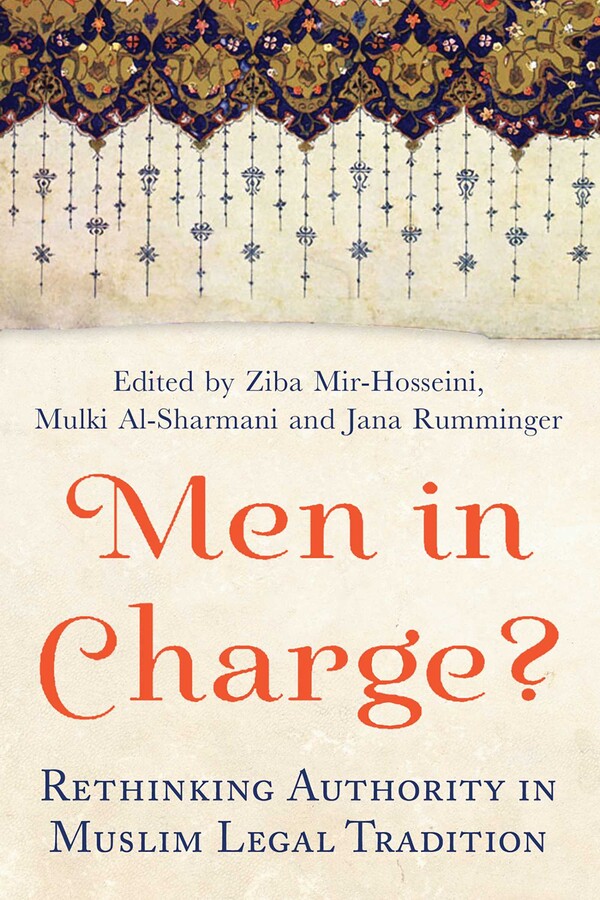Plus get our latest book recommendations, author news, and competitions right to your inbox.
Men in Charge?
Rethinking Authority in Muslim Legal Tradition
Table of Contents
About The Book
Recently, exciting new feminist research has been challenging gender discrimination and male authority from within Islamic legal tradition: this book presents some important results from that research. The contributors all engage critically with two central juristic concepts; rooted in the Qur’an, they lie at the basis of this discrimination. One refers to a husband’s authority over his wife, his financial responsibility toward her, and his superior status and rights. The other is male family members’ right and duty of guardianship over female members (e.g., fathers over daughters when entering into marriage contracts) and the privileging of fathers over mothers in guardianship rights over their children.
The contributors, brought together by the Musawah global movement for equality and justice in the Muslim family, include Omaima Abou-Bakr, Asma Lamrabet, Ayesha Chaudhry, Sa‘diyya Shaikh, Lynn Welchman, Marwa Sharefeldin, Lena Larsen and Amina Wadud.
Product Details
- Publisher: Oneworld Academic (December 10, 2014)
- Length: 304 pages
- ISBN13: 9781780747170
Raves and Reviews
'Men in Charge? is bound to be a key scholarly text for anyone researching or studying law or Islam in general. It is a necessary book, one which is carefully designed to combat misconceptions and prejudice, and one which, most importantly, has a practical focus: all of the book’s contributors are writing for change. In reminding us that there is a difference between the Qur’an and the subsequent misogynist interpretations at the hands of certain actors (“Shari’ah court judges, community leaders, imams, women in leadership positions who perpetuate patriarchal structures of power, etc”), these authors pave the way for a brighter and fairer future for Muslim women.'
– LSE Review of Books
‘A powerful new weapon for Islamic gender warriors: a book examining how a single verse in the Quran became the basis for laws across the Islamic world asserting Muslim men’s authority – and even superiority – over women.’
– Time, Carla Power
‘Brimming with fact and insight, these critical and constructive essays by a global array of scholars and reformers focus our attention on how patriarchy functions in Muslim texts and contexts, and how it can be challenged. Their distinctive analyses converge and diverge, leading the reader to a new awareness of the range and power of Muslim feminist thought in the twenty-first century.’
– Kecia Ali – Associate Professor of Religion, Boston University
‘Bar none, this is the best treatment of women and Islamic law that I have read in the past twenty years ... profound, eye-opening and even exhilarating. It is difficult for me to take seriously any student or scholar dealing with the subject of guardianship of men over women in Islam unless, or until, they have read and digested this book.’
– Dr. Khaled Abou El Fadl – Omar and Azmeralda Alfi Professor of Law, UCLA School of Law
'A highly stimulating collection of pieces by notable scholars and activists that critically examines the concepts of qiwamah and wilayah in the Muslim legal tradition, Men in Charge provides a complex and clearly articulated analyses of the problems with the dominant exegetical and juristic understandings of gender relations. This volume ventures beyond a mere critique; it offers significant alternative readings of Islam’s epistemological sources and delivers significant insights into gender relations from diverse perspectives including Islam’s spiritual tradition and the lived realities of Muslim women with a view to offering ethical and just alternatives to the dominant and traditional understanding of gender relations. Men in Charge is, without a doubt, an extremely valuable contribution to the discourse on gender relations, equality, justice and women’s rights in Islam and among Muslims.'
– Farid Esack – Professor in the Study of Islam and Head of Department of Religion Studies, University of Johannesburg
Resources and Downloads
High Resolution Images
- Book Cover Image (jpg): Men in Charge? eBook 9781780747170




